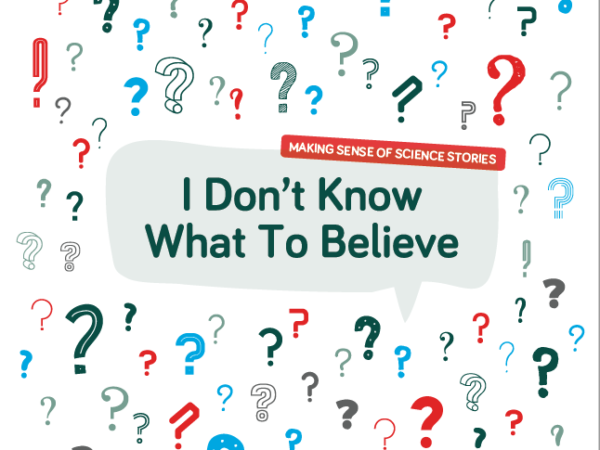Voice of Young Science
Voice of Young Science (VoYS) is our growing international community of Early Career Researchers (ECRs) who are inspired and motivated to take responsibility for the public conversation about science and evidence. We provide training, resources, and ongoing opportunities to build the confidence and skills of ECRs to engage in the public discourse around science, research and the research process. We believe that investing at the early stage of researchers’ careers is a way of improving the culture around research toward openness and transparency in the longer term.
VoYS has an ethos that matches the challenge of engaging the public, policymakers, and journalists in current discussions about science and research. It aims to inspire researchers to understand why it is so important that they stand up for science and are willing and able to respond to the public’s questions and concerns. VoYS aims to achieve this through:
- Training that builds confidence and skills to talk about some of the trickiest issues around evidence and research for example, uncertainty, research integrity and trade-offs
- Delivery to a group of motivated ECRs who want to get involved in public discussions around science
- Maintaining a supportive network, and providing resources and inspiring stories from other researchers
Why its important for ECRs to stand up for science
Workshops
Our training is unique and born from over 20 years’ experience of dealing with some of the most complex issues around science and evidence.
ECRs hear directly from researchers further along in their careers about their experiences – both good and bad – of working with the media and policy worlds. They also hear from experienced journalists and policy professionals who will bust common misconceptions about how the media and policy worlds work and what they need from scientists to operate effectively. The day ends with a practical session in which we discuss the issues where ECRs think the public discussion around science is going wrong, and look at the tools and insights ECRs need to help them have a better conversation.

“I loved it and was really glad I attended. I enjoyed the group activities as our group had loads to talk about and it’s a shame it wasn’t longer! I met some really great people that I have connected with on social media/LinkedIn.”
University of Exeter PhD student, 2023
“I loved the workshop and found all the panels to be really informative. The panellists were all really insightful and happy to give their time to us and answer questions. It has really opened my eyes to the world of media engagement.”
University of Manchester PhD student, 2023
Resources
Sense about Science has influenced and changed the discussion around how science and evidence should be communicated, particularly on emerging and controversial issues. We will draw on this rich experience to develop and disseminate a series of shareable resources every month which will support ECRs when they have conversations about research.
Network
The VoYS network is a supportive interdisciplinary community through which we disseminate our cutting-edge resources, share inspiring stories and lessons of other researchers experiences of engaging the public, as well as opportunities to get involved in Sense about Science’s activities and campaigns.
Partners
Many universities and institutions help deliver on their commitment to support early career researchers by partnering with VoYS. Our unique programme maximises the value of peer-to-peer learning with lasting effect, and enables partners to share costs with a wide range of respected organisations.
Contacts us for more information about becoming a VoYS partner.








